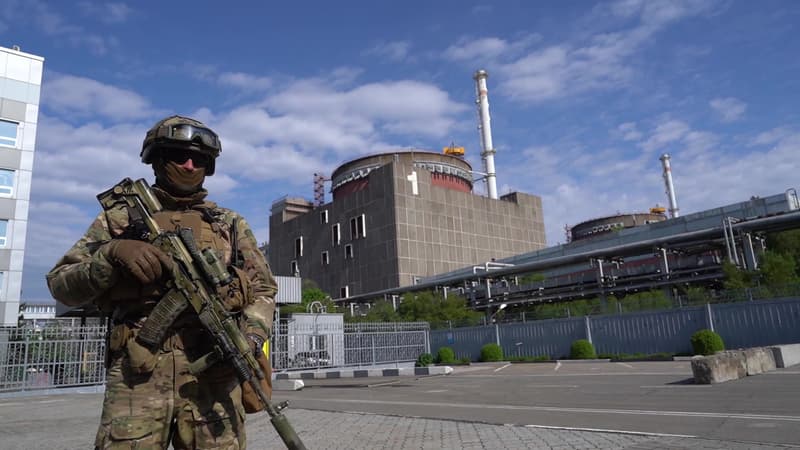The Ukrainian operator Energoatom accused Russia on Tuesday of having “kidnapped” two executives from the Zaporizhia nuclear power plant, the largest in Europe, which it has occupied since March in southern Ukraine.
According to Energoatom, the head of the IT department, Oleg Kostioukov, and the plant’s deputy director, Oleg Ocheka, were taken by Russian forces on Monday “to an unknown destination.”
The Ukrainian operator asked the head of the International Atomic Energy Agency (IAEA), Rafael Grossi, on social networks to “do everything possible” to obtain his release.
A freed HRD
The Zaporijjia power plant is a regular victim of bombings and power outages, raising concerns about the safety of this facility. Staff are under even more pressure: Kyiv has repeatedly accused Russian forces of mistreating employees or holding them in detention.
Last week, Energoatom was particularly concerned about the fate of deputy human resources director Valery Martyniouk. In a press release published Tuesday night, the IAEA, which has experts on site, reported “their release of him” from him.
Rafael Grossi “welcomed” this news, while deploring the arrest of two new employees. “This is another worrying development that I hope will be resolved quickly,” he said, adding that consultations would continue to create a buffer zone around the site.
At the end of September, Energoatom accused Moscow of arresting and detaining the director of the plant, Igor Murachov, for several days before releasing him.
Source: BFM TV


